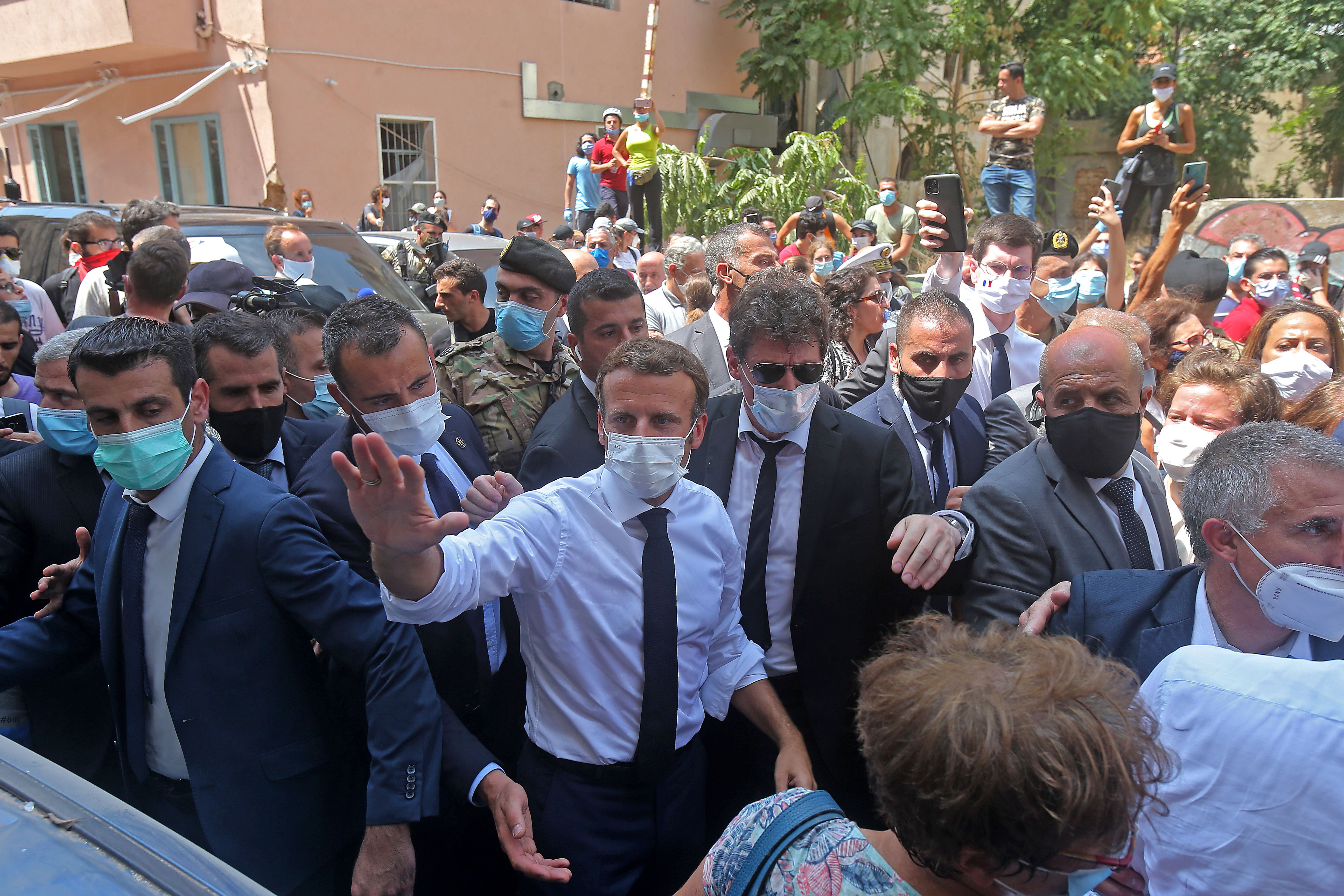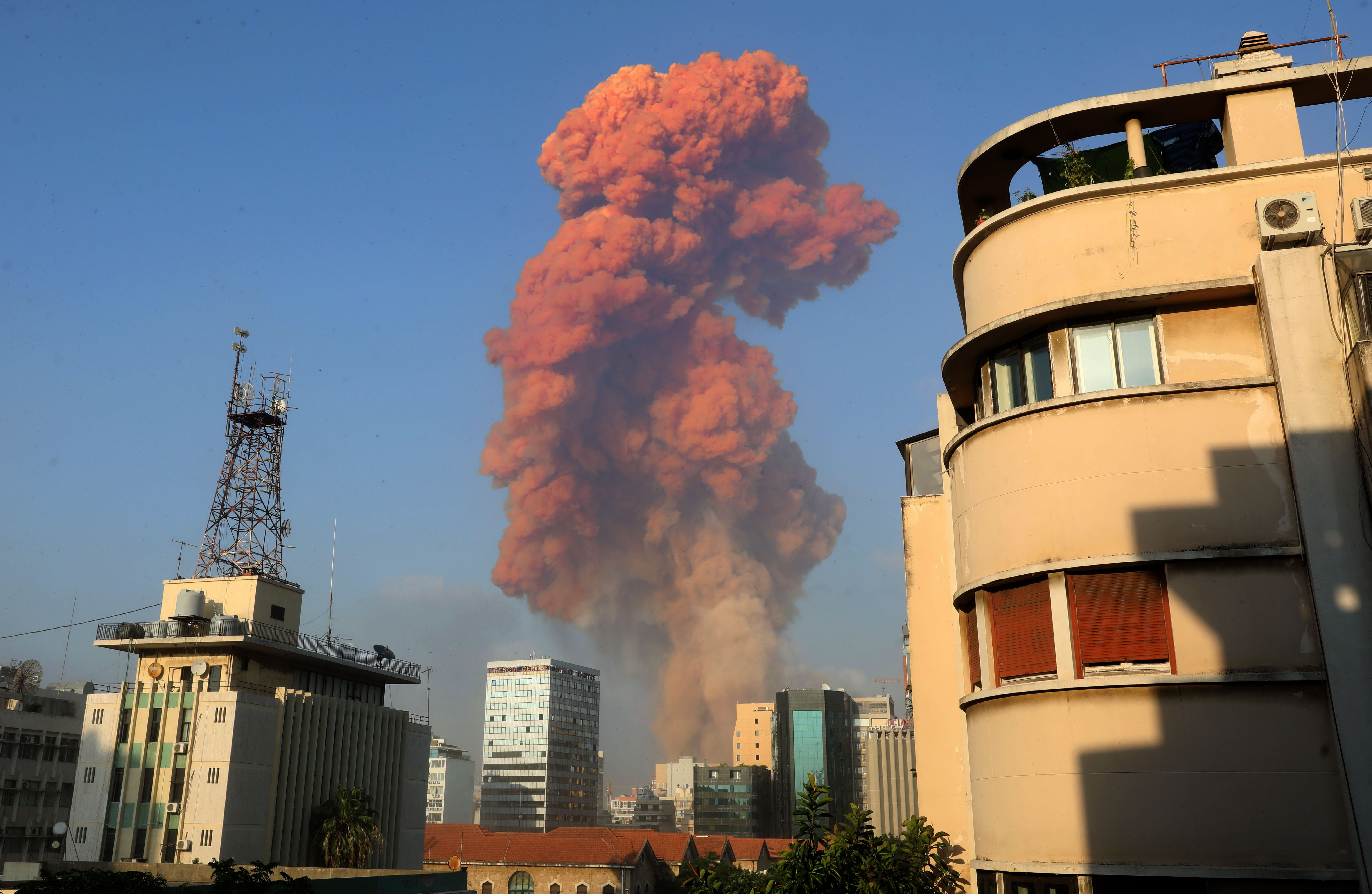What you need to know about ammonium nitrate
From CNN's Jessie Yeung
Lebanese officials have pointed to a possible cause of the massive explosion that tore through Beirut: Prime Minister Hassan Diab said the devastating blast was caused by 2,750 tons of ammonium nitrate.
The dangerous compound — also known as AN — could be traced back to a massive shipment of agricultural fertilizer that had been stored in the port of Beirut without safety precautions for years, despite warnings from local officials.
AN doesn't burn, but if exposed to heat, it can melt — which releases combustible toxic gases that can cause an explosion. It's even more dangerous if there is a large supply of AN all stored together, because once a small section of AN begins to melt and explode, the resulting heat can set off the rest of the supply.
Other AN disasters: One of the worst disasters in US history involving a form of ammonia occurred in April 1947 when a ship loaded with ammonium nitrate caught fire while docked in Texas City. The fire caused an explosion and additional fires that damaged more than 1,000 buildings and killed nearly 400 people, according to the website of the Texas Historical Association.
For perspective, that explosion was triggered by 2,300 US tons (about 2087 metric tons) of ammonium nitrate, according to US Homeland Security.
And the 1995 Oklahoma City Bombing, a US domestic terror attack that killed 169 people and injured 467, used only two US tons (1.8 metric tons) of ammonium nitrate.
French president says his country's aid to Beirut "will not go to corrupt hands"
From CNN's Barbara Wojazer and Sharon Braithwaite
French aid to Beirut "will not go to corrupt hands" French President Macron told Lebanese protesters on Thursday, an Elysée spokesperson told CNN.
"I am here and it’s my duty to help you, as a whole population, to bring medication and food," Macron said according to Elysée.
"This aid, I guarantee it, won’t end up in corrupt hands. I will speak to all political forces to ask for a new pact," Macron said, adding: "I am here today to propose a new political pact. If they [the political forces] are not able to keep this pact, I will take my responsibilities," the French president said.
France's Emmanuel Macron is in Lebanon today
From CNN's Barbara Wojazer in Paris
 French President Emmanuel Macron, in the white shirt, greets people on August 6 as he visits the Gemmayzeh neighborhood in Beirut. AFP/Getty Images
French President Emmanuel Macron, in the white shirt, greets people on August 6 as he visits the Gemmayzeh neighborhood in Beirut. AFP/Getty ImagesFrench President Emmanuel Macron has said "unconditional help is the priority" in the wake of the devastating Beirut blast, but also warned that unless reforms were implemented "Lebanon will continue to sink."
Macron landed in the Lebanese capital on Thursday and was welcomed by President Michel Aoun.
Speaking shortly after his arrival, Macron stressed that there needed to be a fight against corruption in the country's energy sector and public contracts.
Officials have blamed the devastating explosion on 2,750 metric tons of poorly stored ammonium nitrate.
There is mounting public anger in Lebanon at the political class over revelations that the blast may be linked to government negligence.
Macron added that the Lebanese authorities have a "historic responsibility" in the current crisis.
It is a political, moral, economic and financial crisis whose first victim is the Lebanese population," he said.
France has sent an aid package to Lebanon which includes two military planes, 55 personnel, 15 tons of equipment and a mobile clinic able care for 500 wounded people.
One French national was killed in the blast and 24 others were injured, Junior Minister to France's Foreign Ministry Jean-Baptiste Lemoyne told France Inter radio on Thursday.
More than 130 people were killed in the Beirut blast. Here's what we know so far.
From CNN's Jessie Yeung and Luke McGee
 Red smoke rises after an explosion in Beirut, Lebanon, on August 4. Anwar Amro/AFP/Getty Images
Red smoke rises after an explosion in Beirut, Lebanon, on August 4. Anwar Amro/AFP/Getty ImagesA massive explosion rocked the Lebanese capital of Beirut on Tuesday evening, leaving at least 137 dead and thousands injured.
Here's what we know so far:

 5 years ago
553
5 years ago
553 

